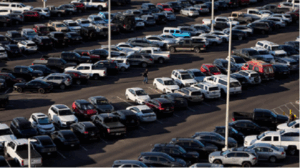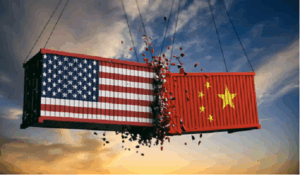Tesla threatens to sue Canadian government over frozen electric-vehicle money
Tesla has accused the Canadian government of unlawfully freezing more than $43 million in electric vehicle rebate payments and threatened legal action if the payments are not resumed “immediately.”
In a letter sent to Transport Canada on March 28, the EV maker run by U.S. presidential adviser Elon Musk expressed surprise at then-transport minister Chrystia Freeland’s decision to halt subsidy payments pending an investigation into the spike of thousands of claims the company filed in the final 72 hours of a public subsidy program.
Tesla was “shocked” to learn of the freeze through the media, which picked up the Star’s exclusive reporting on the massive spike in rebate claims that drained public funds quickly, leaving hundreds of Canadian auto dealers out of pocket more than $10 million.
“Transport Canada knows full well that Tesla Canada has been fully compliant with its participation in the program,” stated the letter, obtained by the Star via an access-to-information request. “We expect payments to resume in the immediate term.”
“Tesla reserves all rights to seek appropriate remedies in the event we cannot consensually resolve this dispute,” said the letter, signed by Tesla Canada’s director of sales and service Fereshteh Zeineddin.
Zeineddin did not respond to a request for comment.
Transport Canada did not respond to questions for this story.
In order to spur adoption, the federal government’s iZEV rebate program offered purchasers of certain battery electric and plug-in hybrid vehicles $2,500-$5,000 off the purchase price. Dealers fronted the rebate to customers and were later reimbursed by the government.
The program, called iZEV, was wildly popular and handed out nearly $3 billion to more than half a million EV buyers since 2019.
On a Friday, morning in early January, Transport Canada emailed dealerships across the country to tell them that program funding was running low and they would have “a few weeks” to file their final rebates before it was exhausted.
Immediately after the email was sent, four Tesla locations in Toronto, Quebec City and Vancouver started filing for rebates at a furious pace, staking claim to $43.1 million — or 60 per cent of the remaining funds — and draining the program’s coffers by the time the weekend was over.
This flurry of rebate claims meant that 226 independently-owned dealerships were left with no recourse to recoup $10 million in rebates they had fronted to customers.
The four Tesla dealerships filed more than 8,600 rebate claims, which, according to Transport Canada’s website, must be filed before the vehicle is delivered to the customer. This means those dealerships would have had to sell two cars per minute, 24-hours a day, all weekend.
After learning of the Star’s initial reports on Tesla’s rebate spike, the two previous transport ministers, Anita Anand and Freeland, both expressed concerns about the legitimacy of the claims.
“This report is unacceptable and I am asking the department that is responsible for administering this program to provide me with detailed and complete information,” wrote Anand, according to a copy of a text sent to Canadian Automobile Dealers Association spokesperson Huw Williams, seen by the Star.
After Mark Carney won the Liberal leadership and became Prime Minister, his new transport minister, Freeland, froze payouts to Tesla pending a line-by-line investigation.
“As soon as I became Transport Minister, I asked the department to stop all payments for Tesla vehicles in order to fully examine each claim individually and determine whether all are eligible and valid. No payments will be made until we are confident that the claims are valid,” she said in a statement texted to the Star.
Tesla said it backfiled rebate claims for cars it had already sold, which it said was permissible, despite the language on the government website to the contrary.
“Transport Canada also knows full well that filing assessments after vehicle delivery is entirely permissible,” states the letter, which claims Transport Canada confirmed in a 2023 webinar with all participating auto dealers nationwide.
“While eligibility forms were strongly encouraged in advance, they were not required,” states the letter, which also cites a Q+A distributed to the webinar participants that stated backfiling was permitted.
Shortly after the Tesla rebate surge became public, Transport Canada quietly changed the program rules on its website to allow backfiling. After the Star reported on the change, the language reverted to its original wording.
Complicating the issue further, the freeze was announced days after Carney called a federal election, which imposes “caretaker” rules on government departments during the campaign, or so-called “writ period.”
Tesla claims its rebate payments cannot be frozen during this time.
“Tesla expects the department to carry out its responsibility during the writ period to continue program delivery per status quo — that is to pay out these claims per the long-standing program design,” the letter stated.
Freeland’s statement, announcing the freeze, indicated the decision had been made in the week after she was appointed but before the election was called.
This article was first reported by The Star














